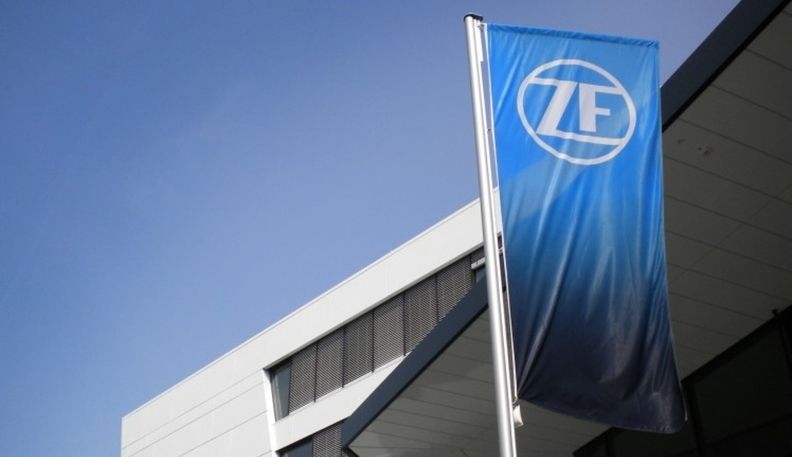ZF Friedrichshafen expects to record positive adjusted earnings before interest and taxes (EBIT) for the year despite a loss of 177 million euros ($209 million) on an adjusted basis in the first half, CEO Wolf-Henning Scheider said.
On a nonadjusted basis, the supplier had an operating loss of 640 million euros in the half, compared with an operating profit of 380 million euros in the first six months of 2019.
The company reported an after-tax net loss of 911 million euros during the half, compared with a net profit of 164 million euros during the same period in 2019.
"If there is no major COVID-19 wave in the next few months, and the market level in the second half is in the range of minus 10 to minus 15 percent" then the supplier "can achieve a positive adjusted EBIT at the end of the year," Scheider said in a statement.
He said ZF limited first-half losses by cutting expenses by 1 billion euros.
First-half revenue, adjusted for exchange rates and other factors, fell by 27 percent to 13.5 billion euros from 18.4 billion euros in the same period in 2019, ZF said.
ZF's adjusted operating loss resulted in an EBIT margin of negative 1.5 percent, compared with a positive margin of 3.5 percent in the first half of 2019.
ZF said a second-half recovery would been seen primarily in Asia, where the coronavirus crisis has been less severe than in Europe and North America.
"China and Asia are currently the most promising markets." Scheider said. "Business in the region is coming back very strongly and is helping us to increase our sales again."
However, ZF said it did not expect the global automotive market to reach 2019 levels again for at least three years, with passenger cars and light trucks recovering more quickly than commercial vehicles.
ZF ranks No. 5 on the Automotive News Europe list of the top 100 global suppliers with worldwide sales to automakers of $34.23 billion in 2019. More than 90 percent of ZF's shares are controlled by the Zeppelin Foundation.
The transmission and electronics supplier has taken steps to adapt to the transition from internal combustion powertrains to electrified ones. Late last montg ZF announced it would halt new investments in internal combustion drives in favor of electric and long-range plug in hybrids, and created a new electrification-focused powertrain unit.
"The coronavirus pandemic is noticeably accelerating the transformation of the automotive industry -- we expect electrification to come even faster now," Scheider said in the statement.
ZF said it had reached an agreement with works councils in Germany to avoid compulsory layoffs or close any sites until the end of 2022. Employees agreed to let ZF reduce working hours by up to 20 percent and offer "targeted" severance packages and part-time work for older employees in Germany. The supplier said it had reduced its 160,000-person global workforce by 5,300 positions since 2018, including 3,800 this year.



